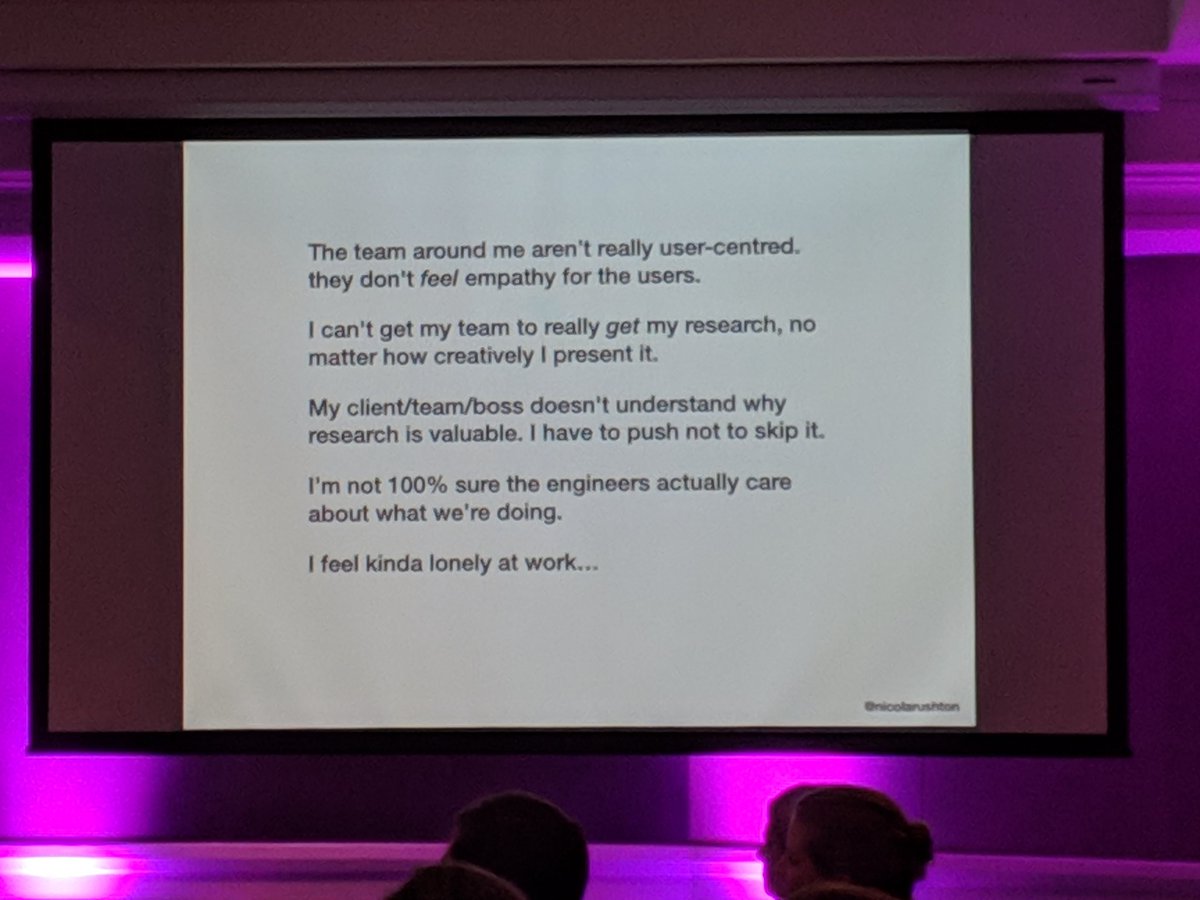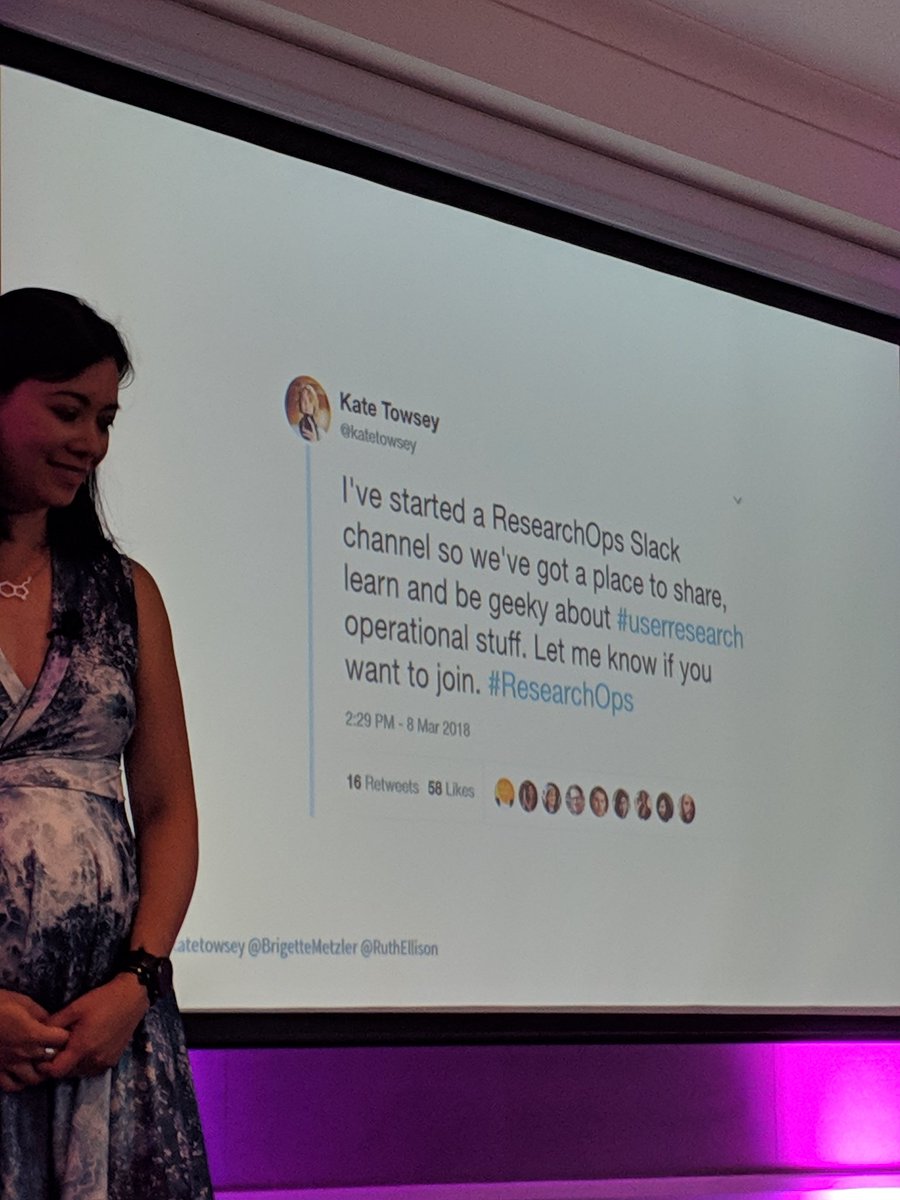#dr19
Nicola begins by asking the audience have they experienced any of the following?

It's not a silver bullet. But it can help.
A low barrier to entry
Low time commitment
Max impact on team members
We can't be there at every decision moment, so we need to empower our team members to make great decisions
Really clear specific questions that the group can go back to at the end of research and ask : did we learn this?
When you do this in a workshop and a lot of goals.
You now have a focus high priority list of learning goals ordered by top priority to your team
Focus
Buy-in
Prioritised list
Cliffhanger: what are we going to find out?
Framing: Say it's required, call them a scribe
Give a little education on what good notes look like
Only have 1 person from the team take the notes
"It's really common for people with power to want to solve problems, we'll wait until we've heard it a couple times before we action it"
I'm not going to tell you how to do it because we all have our own styles and context. I recommend going gut first!
"But what happens if the ycome up with bad insights?"
Have some set guideline for what 'validated' means, like you must have evidence from a minimum of 3 participants
Do we understand this?
Do we have more to learn?
Is it still a priority?
Create action items from the insights.
Conversation actions
Tickets to be written
Engineering spikes
Usability changes
Most of us are in product teams, and if we can facilitate and enable our teams learning we're doing our job.
Researching organically changes the culture and dynamics in a team.
It can create meaningful work.











